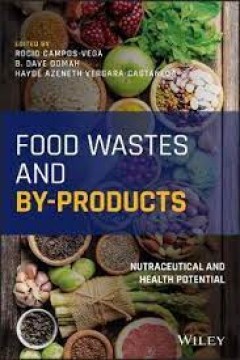Filter by

Phycoremediation of Food Waste using Alginate-immobilized Chlorella vulgaris …
- Edition
- -
- ISBN/ISSN
- EP068
- Collation
- 55 p. : ill. ; 30 cm.
- Series Title
- -
- Call Number
- EP BT-016
- Edition
- -
- ISBN/ISSN
- EP068
- Collation
- 55 p. : ill. ; 30 cm.
- Series Title
- -
- Call Number
- EP BT-016

Determination Of Bacteria Community In Takakura Compost Using Conventional Bi…
"The study delves into the characterization of bacterial communities within Takakura composting. Takakura composting is a method integral to organic waste management, and serves as the focal point for understanding microbial dynamics during decomposition. The research aims to make takakura compost with two different compositions and characterize the bacterial community in the Takakura compo…
- Edition
- -
- ISBN/ISSN
- -
- Collation
- -
- Series Title
- -
- Call Number
- EP BT-021

The Effect of Holding Time of Reheating Frozen Rice in Specific Temperature
This research project addresses the challenge of food waste at Hangry Indonesia, a cloud kitchen restaurant. Focusing on rice, a staple in their menu, the study aims to create a sustainable system to reduce food waste when sales fall short of targets. Additionally, the project explores the impact of reheating frozen rice on texture, specifically addressing issues such as browning and hard…
- Edition
- -
- ISBN/ISSN
- -
- Collation
- -
- Series Title
- -
- Call Number
- EP FS-019

Determination Yeast Community Inoculation Use Takakura Methodology On Food Wa…
This study highlights the environmental consequences of landfill buildup while addressing the issue of insufficient food waste management in Indonesia and the 1.3 billion yearly instances worldwide. The study focuses on the Takakura Composting Method (TCM), which combines fermentative microorganisms and locally created materials to provide a sustainable household-scale solution. The Takakur…
- Edition
- -
- ISBN/ISSN
- -
- Collation
- -
- Series Title
- -
- Call Number
- EP BT-020

An Exploratory Study for Household Food Waste Management Through Waste Bank M…
Increasing population growth globally has a greater impact on waste production. Food waste at the household level is the largest point of concern which is strongly influenced by consumers' behaviors. The issue of waste and its impact has already been a concern in Indonesia through the Regulation Government that produced to support reducing waste in general with the 3R (Reduce,Reuse, Recycle) im…
- Edition
- -
- ISBN/ISSN
- -
- Collation
- -
- Series Title
- -
- Call Number
- MBM 23-006

The Identification of Lactobacillus Bacteria and Yeast Isolated from Fermente…
Food loss/waste has been a problem and worrying issue growing at an alarming rate in many parts of the world, including the developing country, Malaysia. Amongst food waste, fruits and vegetables are wasted at the highest rate. This problem emerges because of many factors, the most significant of which is human consumption behavior. Food waste poses a great threat to the ecosystem because of it…
- Edition
- -
- ISBN/ISSN
- -
- Collation
- -
- Series Title
- -
- Call Number
- BT 23-006

Food wastes and by-products : nutraceutical and health potential
- Edition
- -
- ISBN/ISSN
- 9781119534105
- Collation
- xviii, 458 p. : ill. : ind. : ill. ; 23 cm.
- Series Title
- -
- Call Number
- 664.002 Cam f
- Edition
- -
- ISBN/ISSN
- 9781119534105
- Collation
- xviii, 458 p. : ill. : ind. : ill. ; 23 cm.
- Series Title
- -
- Call Number
- 664.002 Cam f
 Computer Science, Information & General Works
Computer Science, Information & General Works  Philosophy & Psychology
Philosophy & Psychology  Religion
Religion  Social Sciences
Social Sciences  Language
Language  Pure Science
Pure Science  Applied Sciences
Applied Sciences  Art & Recreation
Art & Recreation  Literature
Literature  History & Geography
History & Geography